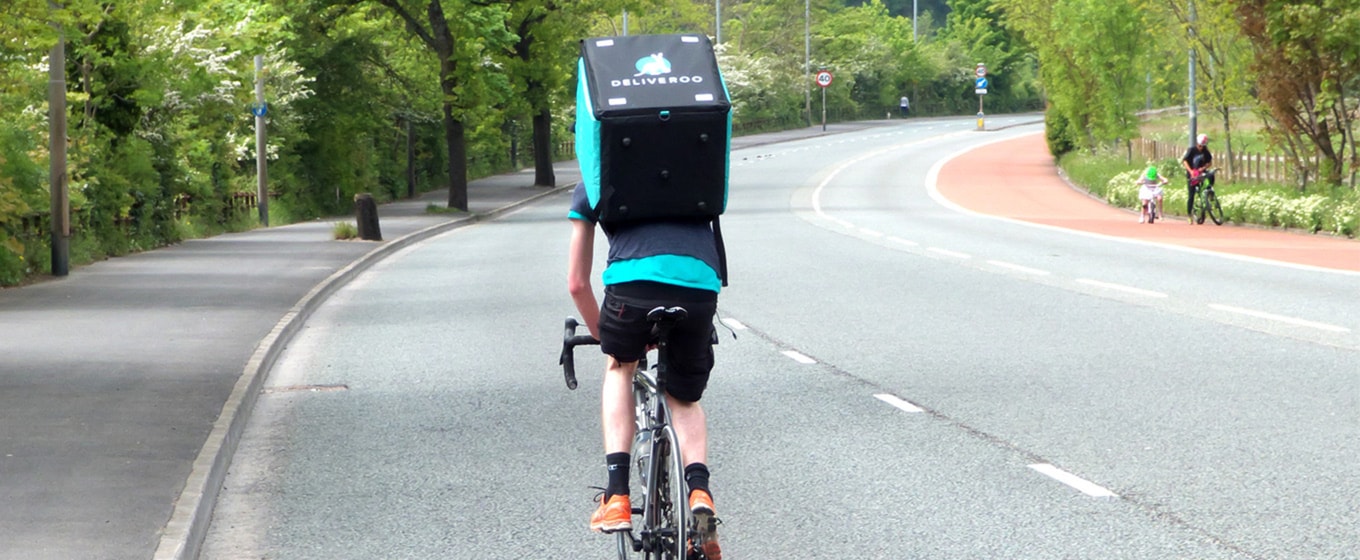Deliveroo has been one of the UK’s biggest startup success stories in recent years. Founded in 2013, the company facilitates food deliveries from some of the biggest restaurant chains in the world, including Pizza Express, Gourmet Burger Kitchen and Wagamama, as well as independent restaurants that didn’t previously offer a delivery service. In the space of three years, it has expanded its operations to 11 other countries and raised close to $500 million in investment.
Yet despite its phenomenal growth to date, Deliveroo has this week landed itself in hot water with the UK government over proposed changes to its pay structure, which could see drivers earn less than the national living wage (NLW).
The proposals, which will see drivers paid £3.75 per delivery instead of £7-per hour plus £1 for each delivery, have led the company’s workers to go on strike and take to the streets of London in protest. They have also hit out at Deliveroo for not offering any sick pay or legal protection in the case of accidents and injuries.
“£7 an hour was OK, and if you worked hard, it was good,” Amir Ali, a Deliveroo driver, told The Guardian. “But now they are cutting it below the basic wage. We work in snow, we work in rain. They don’t give you a place to sit down.”
Because Deliveroo classes its
drivers as self-employed freelancers, it means they don’t enjoy the same employment
rights as employees. However, the
government has now stepped into the dispute, and said it’s for the courts to
decide on the employment status of Deliveroo’s workers.
We work in snow, we work in rain. They don’t give you a place to sit down.Amir Ali
"The Government is determined to build an economy that works for all – that includes ensuring everyone gets a decent wage,” said a spokesperson for the Department for Business, Energy and Industrial Strategy (BEIS). “An individual’s employment status is determined by the reality of the working relationship and not the type of contract they have signed. Individuals cannot opt out of the rights they are owed, nor can an employer decide not to afford individuals those rights. Employers cannot simply opt out of the NLW by defining their staff as self-employed.”
Shadow business secretary Jon Trickett also criticized Deliveroo, claiming the company “is offering a return to a Victorian system which has no place in modern Britain.”
Deliveroo explained it is only trialling the new pay structure in certain parts of London, and that drivers have the option to opt out of the trial, although it’s been reported that workers might have to move to another part of the city to remain on the current payment terms. The company also said that under the new agreement, drivers still will be guaranteed an hourly rate of pay at “peak times”, ranging from £7.50 plus tips and petrol on weekdays to £11.25 plus tips and petrol at weekends.
Our riders are the lifeblood of our business and without them we are nothing.Will Shu
“We’re committed to having an open conversation with riders about this trial,” said Dan Warne, Deliveroo’s UK managing director. “We’ve reached out to every rider involved to gather feedback. We’ve listened to their concerns and offered every rider the choice to withdraw from the trial.”
Meanwhile, Deliveroo’s chief executive Will Shu has apologized for the events of the past week. Speaking to the BBC’s Today programme, he said: “I’m very sorry things have [got] to this point. Our riders are the lifeblood of our business and without them we are nothing.”
If anything, this episode has thrown up some interesting questions about the future of the so-called ‘on-demand’ economy. Questions that could soon be answered in a courtroom.
Photo of Deliveroo rider taken by Sam Saunders (via Creative Commons).




These cookies are set by a range of social media services that we have added to the site to enable you to share our content with your friends and networks. They are capable of tracking your browser across other sites and building up a profile of your interests. This may impact the content and messages you see on other websites you visit.
If you do not allow these cookies you may not be able to use or see these sharing tools.